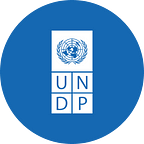Power, politics, and systems transformation
At UNDP Innovation we are on a journey to shift our approach to innovation to help tackle complex development challenges. In short, we are moving away from single point solutions, and instead we are trying to figure out how to develop interventions that are more coherent with the nature of complex systemic challenges. On this blog, I’m sharing (in “real time”) my reflections, insights and ramblings emerging from this exciting and immensely difficult journey. You can find the past blogs in this series here, here and here.
Systems transformation is deeply political. Any system — whether it is a food system or the health sector — represents a locked-in constellation of structures, resource flows, relationships, and narratives (Al Etmansky and Diane Roussin explained this well at the Rockwool Foundation’s 2020 System Innovation conference). Or, as W. Edwards Deming allegedly stated: Every system is perfectly designed to get the result that it does. In any system, certain actors have privileged access and ability to shape how the system functions and how it produces outcomes. These actors will usually benefit more than others from resource flows in the system, and they are likely to oppose change.
Approaches that seek to transform a system necessarily tinker with privileges and the processes that decide “who gets what, when and how” — this is the realm of power and politics. For instance, the Dominican Republic’s tourism sector has been dominated by a relatively small number of large businesses. Though they are few in number, these businesses are influential with policy makers, and they arguably benefit disproportionately from the current system vis-à-vis local communities and small eco-tourism focused businesses (for more see here and here).
Unfortunately, in the development sector we often fail to sufficiently appreciate and engage with the political nature of systems transformation (whilst of course being mindful of our role and mandate). Adrià Garcia i Mateu recently picked up on this blind spot on Twitter in response to our recent post on strategic innovation (thanks Adria for keeping us on our toes!).
In response, and in the spirit of working out loud, I thought it would be good to share some of our current thinking on ways to think and work politically as it applies to our system work. Much as already been done and written on political economy in the field of development, so in this post I’m not trying to reinvent the wheel.
To get started, I mapped out the process that we are currently prototyping in our deep demonstrations (see here). Roughly, this process has four phases:
1. Establishing identity and intent: what system are we interested in and what type of effects are we working towards (being mindful that in situations of complexity we cannot work backwards from an “ideal” state, but rather work with the present and its evolutionary possibilities)?
2. Understanding the system: what are the key dynamics in the system and why is it currently “stuck” in the present state (and here again, being aware that we can only understand a complex system by interacting with it)?
3. Implementation and sensemaking: how do we engage in and learn about the system (though portfolios of interventions that are dynamically managed)?
4. Evaluation: has the system changed and did we contribute to this (together with many other actors and factors)?
I subsequently identified entry points for thinking and working more politically at each of the four phases. The visual below provides an overview of some of the questions we want to ask ourselves in each phase to make sure we appreciate, learn about, and engage with the political nature of systems transformation. We have another layer of detail with more practical guidance at each step. If you are interested in finding out more, please do get in touch. I would love to compare notes with others who are thinking along the same lines.
In this blogpost I presented a rough outline of our early efforts to better appreciate and navigate the deeply political nature of systems transformation. We continue to test and refine this as we move forward. However, in the meantime we are very interested to hear what you think of the above and to learn more about how you are trying to think and work politically with systems approaches.
This work has been made possible with the generous support from Denmark.
